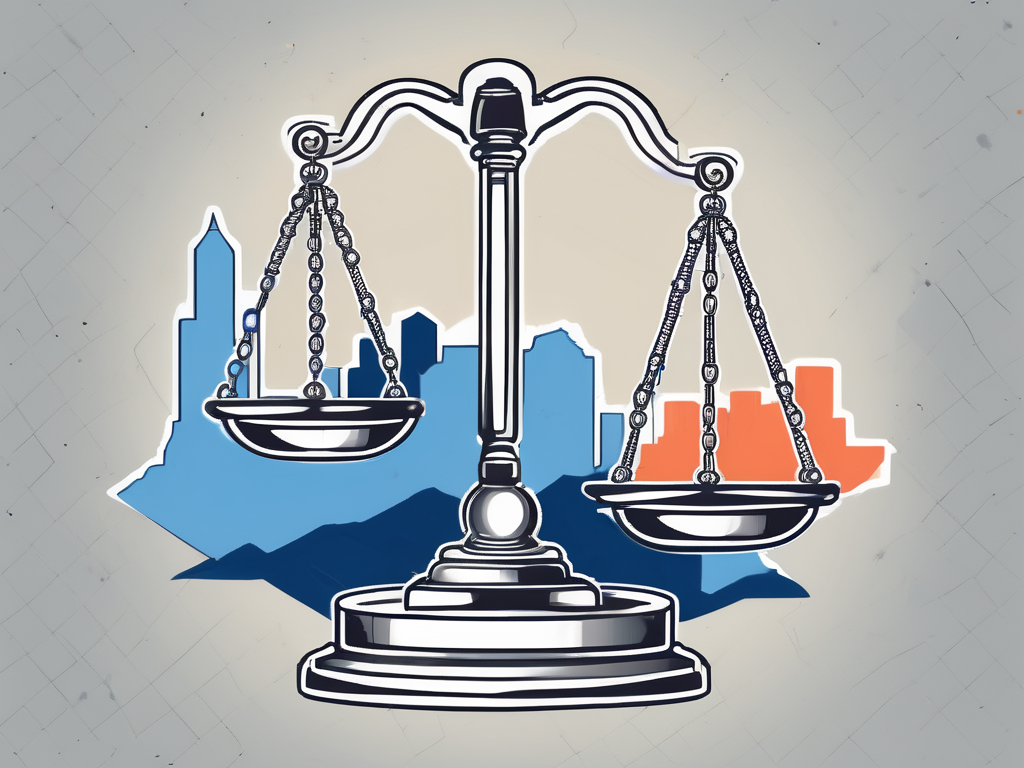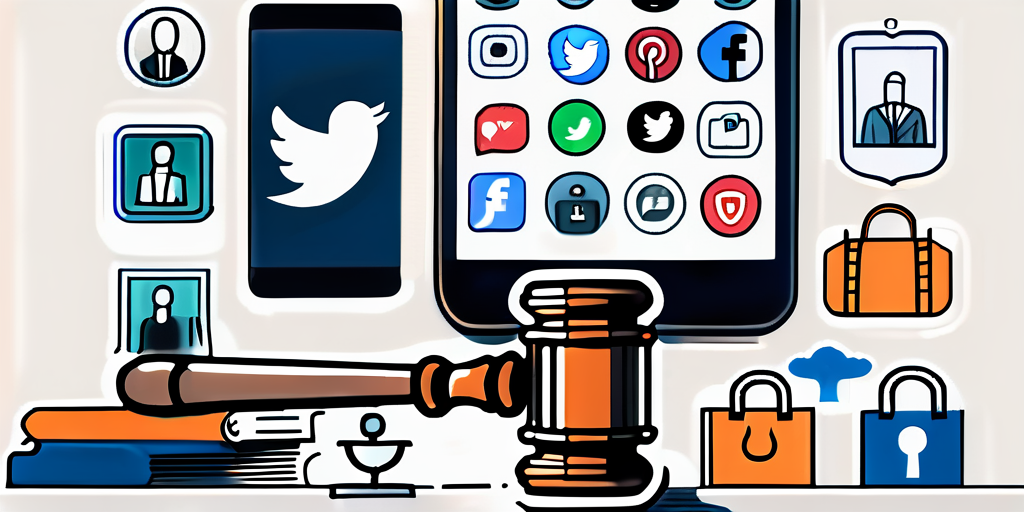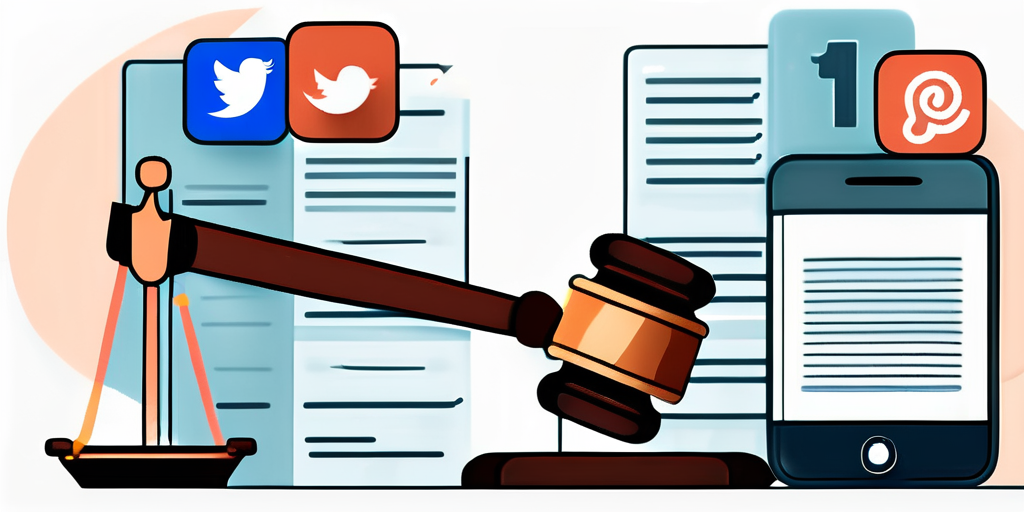
In recent years, the impact of social media on personal injury cases in Georgia has become increasingly significant. With the widespread use of platforms like Facebook, Twitter, and Instagram, individuals involved in personal injury litigation must navigate the complexities of social media evidence and its implications on their cases. From influencing settlements and verdicts to raising privacy concerns and legal challenges, this article explores the role of social media in personal injury cases and discusses the future challenges and trends in Georgia’s legal landscape.
Understanding the Role of Social Media in Personal Injury Cases
Social media has revolutionized the way people communicate and share information. In personal injury cases, social media platforms often serve as valuable sources of evidence. Lawyers and insurance companies now routinely scour social media profiles for posts, photos, and comments that may contradict a claimant’s testimony or demonstrate the extent of their injuries.
However, it is crucial for claimants to understand that even seemingly innocent posts can be misconstrued or taken out of context, potentially harming their case. Therefore, individuals involved in personal injury litigation must exercise caution and be mindful of the potential repercussions of their social media activity.
One common mistake individuals make is underestimating the reach of their social media posts. What may seem like a private update among friends can easily be discovered and used against them in court. For example, a claimant who posts a photo of themselves engaging in physical activity may inadvertently undermine their claim of severe physical limitations due to an injury.
Moreover, social media content is not only scrutinized for its relevance to the case but also for any inconsistencies in the claimant’s statements. Insurance companies are known to compare a claimant’s social media activity with their official statements to look for any disparities that could weaken the case. Therefore, it is essential for individuals navigating personal injury claims to maintain consistency in their online presence and carefully consider the potential impact of their posts on their legal proceedings.
Social Media Evidence: How It Can Make or Break a Case
When it comes to personal injury cases, social media evidence can make or break a case. Insurance companies and defense attorneys often use posts, photos, and videos from social media platforms to challenge a claimant’s claims of injury, pain, or emotional distress.

For instance, if a claimant alleges that a car accident caused severe back pain but then posts photos of themselves engaging in physically demanding activities on social media, it can weaken their credibility and the validity of their claim. Similarly, posts or comments that suggest the claimant may have contributed to the accident or engaged in reckless behavior can be damaging to their case.
Moreover, the impact of social media evidence goes beyond just personal injury cases. In family law disputes, such as child custody battles, posts on social media can be used as evidence to support or challenge a parent’s fitness to care for their child. For example, if a parent is seeking full custody but their social media posts depict a lifestyle inconsistent with providing a stable environment for the child, it can significantly influence the court’s decision.
Additionally, in criminal cases, social media evidence has been instrumental in proving guilt or innocence. Law enforcement agencies and prosecutors often scour social media profiles for incriminating posts or photos that can link a suspect to a crime scene or establish a motive for the crime.
Privacy Concerns: Navigating the Legalities of Social Media in Court
While social media can provide valuable evidence in personal injury cases, it also raises significant privacy concerns. Claimants may feel that their privacy is being invaded when defense attorneys or insurance companies sift through their personal information and social media profiles.
However, it’s important to note that social media posts are generally considered public information, and the expectation of privacy may be limited in personal injury litigation. Courts often rule that individuals who make their personal lives public through social media cannot expect their posts to remain private in a legal context.
Nevertheless, it is advisable for individuals involved in personal injury cases to review their privacy settings on social media platforms and exercise discretion when posting during ongoing litigation.
When it comes to navigating the legalities of social media in court, it’s crucial to understand the nuances of privacy laws and how they intersect with the digital landscape. The evolution of technology has blurred the lines between public and private information, making it essential for individuals to be vigilant about what they share online.
Furthermore, the interpretation of privacy rights in the context of social media evidence is a complex and evolving area of law. Courts must balance the need for relevant evidence with the protection of individuals’ privacy rights, creating a delicate legal dance that requires careful consideration.
The Influence of Social Media Posts on Settlements and Verdicts
Social media posts have a significant influence on settlement negotiations and court verdicts in personal injury cases. Insurance companies and defense attorneys will use any incriminating posts or information shared on social media to diminish the value of a claim or dispute liability.
Conversely, claimants’ attorneys can also leverage social media evidence to support their clients’ assertions and present a compelling case. It is essential for both sides of a personal injury case to thoroughly analyze the social media presence of the opposing party and strategically evaluate the potential impact such evidence may have on the outcome.
Moreover, the impact of social media on legal proceedings extends beyond personal injury cases. In family law disputes, such as divorce and child custody battles, social media posts can play a crucial role in determining parental fitness and behavior. Judges may consider social media content as evidence of a party’s lifestyle, character, or even mental state, influencing the final decision.
Additionally, in criminal cases, social media can serve as a treasure trove of evidence for both the prosecution and the defense. Posts, messages, and photos shared online can provide alibis, establish timelines, or even reveal motives, significantly shaping the direction of the trial.
Expert Tips for Managing Social Media During a Personal Injury Claim
Given the potential consequences of social media activity in personal injury cases, it is vital for claimants to follow some expert tips for managing their online presence during the litigation process.

- Exercise Caution: Claimants should be cautious about what they post, ensuring that their social media activity does not contradict the claims they are making in their case.
- Review Privacy Settings: Regularly review and update privacy settings on social media platforms to restrict access to personal information and posts.
- Avoid Discussing the Case: Refrain from discussing the details of the personal injury case on social media to prevent any potentially detrimental impact on the claim.
- Think Before Posting: Before posting anything online, claimants should consider how the content may be perceived in the context of their case.
Case Studies: Real-Life Examples of Social Media Impacting Legal Outcomes
Real-life examples of how social media impacts the legal outcomes of personal injury cases can provide valuable insights into the significance of this issue.
One such case involved a claimant who alleged catastrophic injuries resulting from a slip and fall accident. The defense team discovered photos on the claimant’s social media profile showing them engaging in physical activities that contradicted their alleged injuries. This evidence significantly weakened the claimant’s case, leading to a reduced settlement offer.
Another case involved a claimant who suffered emotional distress following a car accident. The defense team successfully used social media posts depicting the claimant enjoying vacations and participating in social activities to undermine their claims of emotional distress, resulting in a favorable verdict for the defendant.
Legal Precedents: How Georgia Courts Have Ruled on Social Media Evidence
Georgia courts have recognized the relevance and admissibility of social media evidence in personal injury cases. In a landmark ruling, the Georgia Court of Appeals held that social media posts, when relevant, are admissible as evidence in court proceedings.

However, courts also emphasize the need for caution in evaluating and interpreting social media evidence. Context, authenticity, and potential manipulation of posts are considerations when determining the weight and credibility of social media evidence.
The Future of Social Media in Personal Injury Litigation: Trends and Challenges
As technology evolves, the influence of social media on personal injury litigation in Georgia will continue to grow. Both attorneys and claimants must stay abreast of emerging trends and challenges to effectively navigate this evolving landscape.
One emerging trend is the use of artificial intelligence (AI) and machine learning to analyze and interpret vast amounts of social media data. This can help attorneys identify relevant evidence to support their clients’ claims or challenge the opposing party’s assertions.
However, the increasing prevalence of deepfakes and manipulated media poses challenges in determining the authenticity and credibility of social media evidence. Georgia courts will undoubtedly grapple with the legal implications of such technologies and establish guidelines for the admissibility and weight of evidence derived from social media platforms.
Conclusion
In conclusion, social media’s impact on personal injury cases in Georgia cannot be ignored. From its role in providing valuable evidence to the privacy concerns and legal challenges it presents, social media has changed the landscape of personal injury litigation. Claimants must exercise caution and consider the potential consequences of their online activity throughout the litigation process. Attorneys and courts, meanwhile, must adapt to the evolving trends and challenges posed by social media to ensure a fair and just legal system. By understanding and effectively managing the impact of social media, individuals involved in personal injury cases can navigate the complexities of this digital age and strive for the best possible outcomes.






